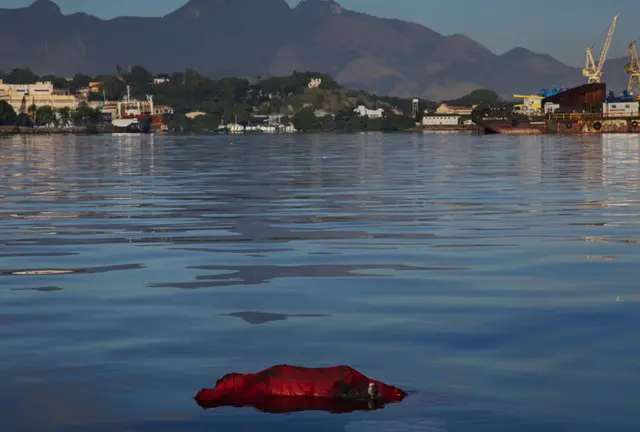Health experts inBrazilhave a word of advice for the Olympic marathon swimmers, sailors and windsurfers competing in Rio de Janeiro’s picture-postcard waters next month: Keep your mouth closed.
Despite the government’s promises seven years ago to stemthe waste thatfouls Rio’s expansive Guanabara Bayand the city’s fabled ocean beaches, officials acknowledge that their efforts to treat raw sewage and scoop up household garbage have fallen far short.
In fact, environmentalists and scientists say Rio’s waters are much more contaminated than previously thought.
Recent tests by government and independent scientists revealed a veritable petri dish of pathogens in many of the city’s waters, from rotaviruses that can cause diarrhea and vomiting to drug-resistant “superbacteria” that can be fatal to people with weakened immune systems.
Researchers at the Federal University of Rio also found serious contamination at the upscale beaches of Ipanema and Leblon, where many of the half-million Olympic spectators are expected to frolic between sporting events.
“Foreign athletes will literally be swimming in human crap, and they risk getting sick from all those microorganisms,” said Dr. Daniel Becker, a local pediatrician who works in poor neighborhoods. “It’s sad but also worrisome.”
Government officials and the International Olympic Committee acknowledge that, in many places, the city’s waters are filthy. But they say the areas where athletes will compete — like the waters off Copacabana Beach, where swimmers will race — meet World Health Organization safety standards.
Even some venues with higher levels of human waste, like Guanabara Bay, present only minimal risk because athletes sailing or windsurfing in them will have limited contact with potential contamination, they add.
Still, Olympic officials concede that their efforts have not addressed a fundamental problem: Much of the sewage and trash produced by the region’s 12 million inhabitants continues to flow untreated into Rio’s waters.
“Our biggest plague, our biggest environmental problem, is basic sanitation,” said Andrea Correa, the top environmental official in the state of Rio de Janeiro. “The Olympics has woken people up to the problem.”
Foreign athletes preparing for the Games have long expressed concern that waterborne illnesses could thwart their Olympic dreams. An investigation by TheAssociatedPresslast year recorded disease-causing viruses in some tests that were 1.7 million times the level of what would be considered hazardous on a Southern California beach.
“We just have to keep our mouths closed when the water sprays up,” said Afrodite Zegers, 24, a member of the Dutch sailing team, which has been practicing in Guanabara Bay.
Some athletes here for the Games and other competitions have been felled by gastrointestinal illness, including members of the Spanish and Austrian sailing teams. During a surfing competition here last year, about a quarter of the participants were sidelined by nausea and diarrhea,organizers said.
Officials have been grappling with a welter of challenges as they scramble for the opening ceremony on Aug. 5. The Zika virus epidemic has dampened foreign ticket sales, crime is soaring, and the federal government has been paralyzed by the impeachment proceedings against Brazil’s president, Dilma Rousseff.
Last month, the acting governor of Rio de Janeiro, Francisco Dornelles, declared a state of emergency, claiming that a lack of money threatened “a total collapse in public security, health, education, transport and environmental management.”
Still, Olympic organizers say the sports venues are nearly complete, and the federal government has provided emergency funds to the state. Many athletes expect the Games to proceed without serious complications.
The city’s contaminated waterways, however, are another matter.
“It’s disgusting,” said Nigel Cochrane, a coach for the Spanish women’s sailing team. “We’re very concerned.”
For many, the sewage crisis is emblematic of the corruption and mismanagement that have long hobbled Brazil, Latin America’s largest country.
Rio officials claim to have spent billions of dollars on sewage treatment systems since the 1990s, but few are functioning.
In its 2009 bid for these Games, Brazil pledged to spend $4 billion to clean up 80 percent of the sewage that flows untreated into the bay. In the end, the state government spent just $170 million, citing a budget crisis, officials said.
(NYT)
 简体中文
简体中文

